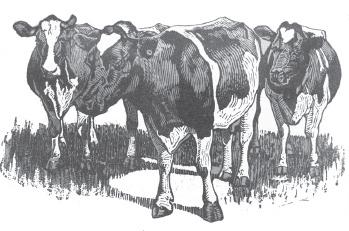
3 minute read
Paul Minor
Delving Into Yester~Year
Local historian and writer Paul Miner takes items from The Republican’s Yester-Year column to develop an interesting, informative and often humorous article.
Advertisement
To the Editor: A young girl was in trouble in Danville in July 1884. Jailed for theft, she shocked The
Republican’s reporter when he visited her. “A more horrible sight is scarcely ever seen in a small town.” Sixteen, ragged and dirty, she was clad only in a torn calico dress, worn-out slippers, “and a thick coat of dirt.”
Illiterate, she hailed from Belle Union and had left home after falling “into bad company and becoming morally depraved.” Going to Greencastle, she went “from bad to worse,” and then arrived in Coatesville looking for work, but was forced to live in the woods. Men and boys there had given her food but “treated her badly.” Then she stole a dress and earrings from a local home. Apparently “unmindful of the crime she has been committing,” she acknowledged the theft was wrong but “hunger and need for clothing drove her to it.”
A pretty young Rochester lady “of the highest respectability” dressed in men’s clothing in March 1882 and visited the gambling dens and saloons.
“She says she had a perfect revelation of the wickedness of men and will never, never marry.”
Arrested and jailed, she revealed her identity “and her parents came in hot haste for her.”
Later that year, a doctor’s wife was arrested at the Hotel Brunswick in Indianapolis for fornication, apparently with a Chicago man, who complained. Had the doctor not fled, he, too, would have been arrested.
Then a Spencerville man beat another doctor, likely to death, for telling a joke that offended the man’s wife.
Much of the trouble those days was due to people not spending half a cent a day for “intellectual recreation,” meaning they were not buying newspapers. The “great mass of people” had plenty of money for “theatrical humbug,” hats, whiskey and cigars but not to subscribe to a good newspaper.
Dear Editor, have you told The Publisher about this? But before you do, warn him that the editor of a Hot Springs paper was shot and killed later that same year by a railroad magnate and a hotel owner, both former colonels, over “an offensive newspaper article.”
Someone calling himself “Not Nunc” in a Union issue in November 1873, declared, “Knowledge, morals – all the virtues – grow and prosper only as they are cultivated, and the man who does not ‘hoe his row’ in these fields shirks duties which others must do for him, or he and his generation are developing downward.”
Proper “pruning” of young plants and minds was essential, else they would produce “none or inferior fruit.”
I get the sense there was “filth” and “cholera poisons” in Danville, but as I wasn’t there, I don’t know what Nunc was writing about.
“There is a sink of iniquity which has for some time been poisoning the moral atmosphere of Danville.” Property values had depreciated. That declaration likely caught attention. I’ve no time to learn more about it. An indignant pastor deplored what he had experienced in November 1871 when two young women were baptized. Their “modern and enormous” chignons were so overpoweringly large that not a drop of the baptismal water touched their heads. Instead, he was obliged to wet their topknots.
I cannot tell whether Amo’s Addison Coffin intended allegory or wrote of fact when he penned “A White Slave” in February 1865 while the war, clearly won, still raged.
His farm had for some years sheltered fugitive slaves but never “a slender, graceful, beautiful girl, young in years and perfectly white.”
She declared herself a slave fleeing a brute who sought his way with her. He was “an unprincipled monster who sought to seduce her from the path of virtue.”
Resisting, she was relentlessly pursued, “and when persuasion failed . . . the cruel lash was her portion.” When that failed, “he resorted to violence” and knocked her senseless. Thought near death she awoke hidden by a black man who arranged for her to reach Coffin’s farm.
Feverish, in delirium, she nearly died, but miraculously recovered. She then vanished, not to be seen for years until a brother espied her, happily married, on the arm of a “noble specimen of manhood” who knew nothing of her past.
The brother kept her secret. Addison asked, then, “could there be a sin in that amalgamation?”
Paul Miner Lizton









